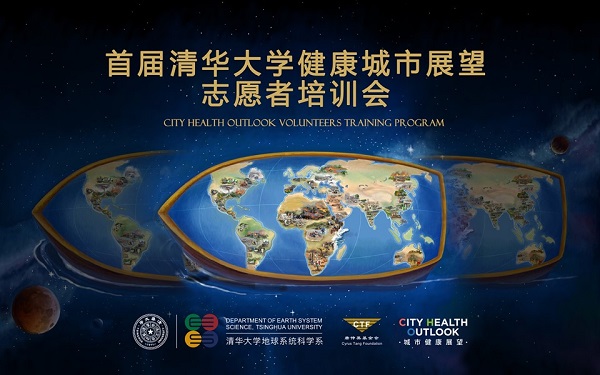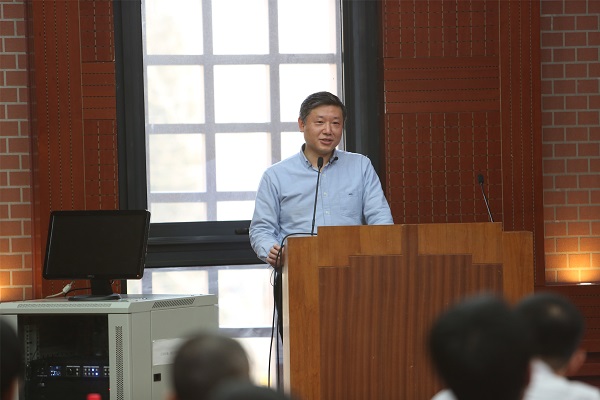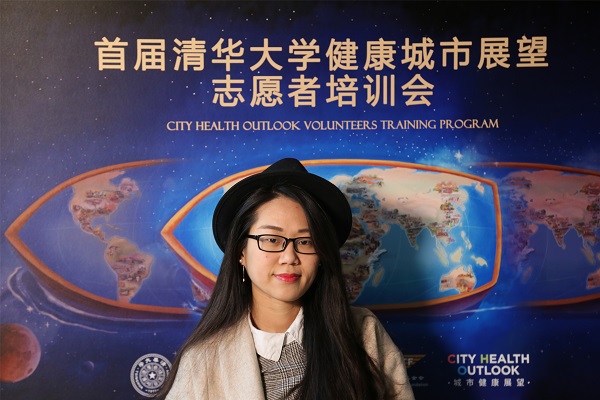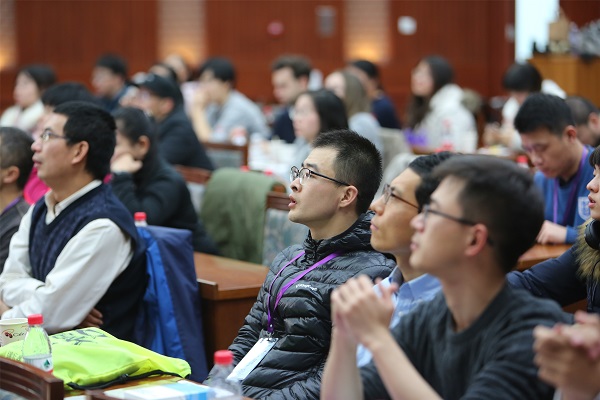On January 7, 2018, the first Healthy City Outlook volunteer training was successfully held in Tsinghua University. 50 "haze agents" from all districts and counties in Beijing come together to address the health challenges posed by global changes by taking concrete actions to support the scientific research of urban health of Tsinghua University's Department of Earth System Science (hereinafter referred to as "Department of Earth Sciences") .

At the meeting, Wu Haiping, deputy director of the Department of Earth Sciences and deputy secretary of the Party Branch, delivered a keynote speech and traced the origin of the "Urban Health Outlook" project. He introduced in detail the interdisciplinary strengths and important research results of the Department of Earth Sciences, Tsinghua University. The Healthy City Outlook project is supported by the Tang Chung Ying Foundation. The project was set up to establish a multi-scale, continuous and real-time urban environment and health monitoring network. Analyze the correlation between individual environmental exposure and physical health. Study the impact of changes in environmental factors on residents' illnesses and causes of death. Understand the risk of disease transmission from urban population mobility networks on a global scale and complete the process of urbanization simulation and public health risk assessment.

The first phase of "Healthy City Outlook" - "Haze Agent" operation started in Beijing to focus on the impact of air pollution on human health. The project team invited volunteers working and living in Beijing to wear environmental monitors to measure the concentration of airborne particles and to send the data back to the cloud computing platform in real time. In conjunction with the daily questionnaire, the project ultimately measures the health effects of environmental factors.

Fifty volunteers from all walks of life have a high awareness of environmental protection and their health status meets the experimental needs. In order to ensure the smooth running of the experiment in the coming week, the project team members answered questions on the experimental time, instrument function, wearing style and responsibility obligations, and also instructed the volunteers to operate the wearing equipment. Volunteers listened attentively to the process of using the equipment, recorded them in detail and actively raised questions. Finally, Wu Xueyao, a graduate student at Tsinghua University Law School, won the acclaim with a song "Heal the World" and concluded the conference successfully.

In September 2017, the project team issued a questionnaire to the public through a new media platform. Of the 782 enrollment questionnaires received, 62% were women. Among them, the largest number of applicants is 21-25 year-olds, accounting for 33% of the total. To a certain extent, it reflects that young people and women pay more attention to the health challenges brought by global change.
During the volunteer recruitment process, the project team got the support of international sports organizations such as Greenpeace, HECC and ZOO outdoor sports clubs. In the future, more volunteers are looking forward to joining our project to help the scientific research with practical actions.